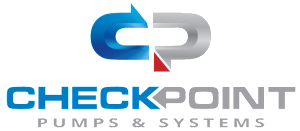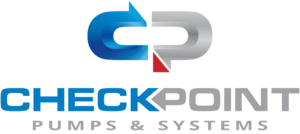5 Best Solar Pumps for Efficient Water Management in Agriculture
In the realm of modern agriculture, effective water management is crucial for enhancing productivity and sustainability. One of the most innovative solutions to this challenge is the integration of solar pumps into irrigation systems. These eco-friendly devices harness the power of the sun, providing a renewable energy source that drastically reduces operational costs and minimizes environmental impact. With the increasing demand for efficient water usage in farming, solar pumps have emerged as a game-changer, enabling farmers to irrigate their crops more effectively and autonomously. In this blog, we will explore the five best solar pumps available on the market today, focusing on their features, benefits, and how they contribute to smarter water management practices in agriculture. As we delve into this topic, you will discover the transformative potential of solar pumps in fostering sustainable farming practices.

Top Features to Look for in Solar Pumps for Agricultural Use
When selecting solar pumps for agricultural use, there are several top features to consider to ensure efficient water management. First and foremost, the pump's flow rate and head height are critical specifications. A high flow rate allows for quicker irrigation, while adequate head height is essential for delivering water to elevated fields or irrigation systems. Understanding the specific requirements of your agricultural setup will help determine the right balance between these two features.
Next, the durability and weather resistance of solar pumps must be evaluated. Agriculture can be unpredictable, and equipment needs to withstand harsh conditions, such as extreme temperatures and moisture. Look for pumps constructed with high-quality materials that offer protection against corrosion and UV rays. Additionally, ease of installation and maintenance should not be overlooked. A simple setup process and accessible components for repair can save farmers time and resources, ultimately contributing to more efficient water management in their operations.

Comparative Analysis of the Five Best Solar Pumps on the Market
When it comes to efficient water management in agriculture, solar pumps have emerged as a game-changer. They harness the power of the sun to provide a sustainable and cost-effective solution for irrigation and water supply needs. In this comparative analysis, we explore the five best solar pumps available on the market, each designed to meet diverse agricultural requirements.
The first contender is the Renogy Solar Water Pump, known for its impressive efficiency and durability. It features a robust design that allows it to operate in various environmental conditions, making it suitable for different agricultural setups. Next, the Sun Pumps PV Series is highlighted for its high flow rate and low maintenance requirements, ideal for larger farming operations. Another noteworthy option is the ECO-Worthy Submersible Pump, which is both affordable and reliable, offering farmers an excellent balance between cost and performance.
Examining these solar pumps reveals not only the technological advancements in pump design but also their adaptability to farmers' varying needs. Whether it's for drip irrigation or supplying water for livestock, these pumps provide innovative solutions that contribute to efficient water management while promoting sustainable farming practices.
5 Best Solar Pumps for Efficient Water Management in Agriculture
| Pump Model | Type | Flow Rate (L/min) | Power Output (W) | Max Head (m) | Price ($) |
|---|---|---|---|---|---|
| Model A | Surface | 50 | 300 | 15 | 1200 |
| Model B | Submersible | 40 | 250 | 10 | 900 |
| Model C | Surface | 60 | 350 | 18 | 1500 |
| Model D | Submersible | 30 | 200 | 8 | 700 |
| Model E | Surface | 55 | 320 | 16 | 1300 |
How Solar Pumps Enhance Water Efficiency and Sustainability in Farming
Solar pumps are revolutionizing water management in agriculture by enhancing both efficiency and sustainability. These innovative systems harness solar energy to operate, reducing reliance on fossil fuels and minimizing operational costs for farmers. By utilizing renewable energy, solar pumps contribute to a significant decrease in greenhouse gas emissions, making agricultural practices more eco-friendly. This transition is essential as farmers face increasing pressure to adopt sustainable methods that can withstand the challenges of climate change and water scarcity.
In addition to their environmental benefits, solar pumps also optimize water usage by providing a reliable source of irrigation. Unlike conventional pumps, which may suffer from fuel shortages or high operational costs, solar pumps ensure a consistent supply of water during critical growing periods. This reliability helps farmers maintain crop health and improve yields, ultimately leading to better food security. The adaptability of solar pumps also allows for various applications, from small-scale farms to larger agricultural operations, offering a valuable tool for farmers looking to enhance their water management strategies in a sustainable way.
Water Efficiency in Agriculture Using Solar Pumps
Installation Tips for Maximizing Performance of Solar Pump Systems
When installing solar pumps for agricultural water management, adhering to a few key tips can significantly enhance their performance and longevity. First, consider the positioning of the solar panels. To maximize sunlight exposure, install the panels on a south-facing slope, away from any obstructions like trees or buildings. This ensures that the panels capture maximum sun throughout the day, optimizing the pump's efficiency.
Another important consideration is the depth of the water source. Ensure that the pump is placed at an appropriate depth to maintain adequate suction. It’s essential to check the water level regularly, especially in dry seasons, to avoid running the pump dry, which can lead to damage. Additionally, investing in a quality inverter can make a notable difference in the system's overall efficiency, converting the solar power collected into usable energy more effectively.
Regular maintenance of the solar pump system is crucial for sustained performance. Checking for debris around the panels, ensuring electrical connections are secure, and cleaning the pump can prevent common issues that diminish efficiency. Establish a periodic maintenance schedule to keep the system running smoothly, thereby ensuring a reliable water supply throughout the farming season.
Maintenance Practices to Ensure Longevity of Solar Pumps in Agriculture
Maintaining solar pumps is crucial for achieving optimal performance in agricultural water management. Regular cleaning of the solar panels is essential to ensure they operate at maximum efficiency. Dust, dirt, and debris can significantly reduce the amount of sunlight that reaches the panels, thereby affecting their energy production. Farmers should inspect the panels periodically, especially after storms or high-wind conditions, to remove any accumulated materials.
Another important maintenance practice involves checking the pump’s electrical connections and wiring. Loose or damaged connections can lead to inefficiencies and may even cause system failures. Farmers should examine the components for signs of wear and tear, and replace any faulty parts promptly. Additionally, monitoring the pump's performance regularly can help identify any changes that may indicate issues, allowing for timely repairs before more significant problems arise.
Routine maintenance of the pump itself is also vital. This includes checking for leaks, lubricating moving parts, and ensuring that the water intake is unobstructed. By adhering to these maintenance practices, agricultural operations can enhance the longevity of solar pumps, ensuring a reliable and efficient water management system for years to come.

Related Posts
-

7 Essential Tips for Choosing the Right Chemical Diaphragm Pump
-

What is the Functionality Behind Liquid Pumps in Modern Industries
-

Unveiling the Best Chemical Pumps: A Comprehensive Comparison Guide
-

7 Reasons Why Electric Diaphragm Pumps Are Your Top Choice for Efficient Fluid Management
-

Evaluating Cost-Effectiveness: A Comparative Analysis of Pump Rentals vs. Purchasing Equipment
-

7 Essential Tips for Choosing the Right Diaphragm Pump for Your Business Needs

Whether your solution requires a single pumping application or an expansive engineered system,
CheckPoint is committed to becoming your partner in excellence.



